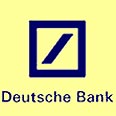
'Israel can offer emerging style growth and performance'
Analysts: Israel to be attractive developed market
Deutsche Bank says although Jewish state will be alongside world's richest economies, its growth characteristics will keep more in line with emerging market
Israel will be an attractive investment after its upgrade from an emerging to a developed market this month in the MSCI Index, analysts say.
Deutsche Bank said this week that although Israel will be alongside the world's richest economies, its growth characteristics will keep more in line with an emerging market.
"(Israel) can offer active developed market investors the opportunity to enjoy emerging style growth and performance without having to invest off-index," the bank said in a report.
Index compiler MSCI announced last June it would include Israel in its World Index and its EAFE Index, the third such upgrade in its history.
When the May 27 reclassification takes effect, passive investors in emerging markets will have to sell Israel holdings. It may take time for developed market funds to take their place.
"The Israeli economy is in relatively good shape. For a developed market investor, Israel would be quite an attractive place," said Andrew Brown, an investment manager at British firm Aberdeen whose emerging market fund has about $700 million in Israeli companies.
"These stocks are of relatively good value," he told Reuters. "We will not rush to sell them."
Foreign investors surveyed by Thomson Reuters Extel in March said the biggest challenge to the Israeli market would be the shift from comprising about 3% of MSCI's emerging markets index to some 0.4% of its developed market index.
Fidelity International's Nick Price, portfolio manager of the Emerging Europe Middle East and Africa Fund, said the switch will not have any effect on his fund because of Israel's size.
"I will stay with stocks that I like and I believe that most people will do the same," he said.
Top-heavy market
A Citigroup report said $2.8 billion in passive outflows were expected from Israeli stocks with the change – but eventually would be more than offset by inflows of $3.6 billion.Foreign investors already hold nearly 30% of Israeli equities, mostly in top companies like Teva Pharmaceutical Industries, Israel Chemicals, Bezeq Israel Telecom and the largest banks, Leumi and Hapoalim.
UBS and Merrill Lynch also view the move as a short-term negative with a more positive long term.
The Tel Aviv 25 index hit an all-time high last month of 1,237.85 points, buoyed by strong economic growth. It has eased back to 1,162 with the global decline in stocks.
The country recovered relatively quickly from the global crisis, its economy expanding at an annualized 4.8% rate in the fourth quarter and 0.7% for all of 2009. The central bank predicts growth of 3.7% in 2010.
Israel was also invited to join the Organization for Economic Cooperation and Development (OECD) this month.
The Bank of Israel said that while there is a chance of an ebb in passive inflows, in previous upgrades there was no evidence of a significant drop in the volume of investment.










